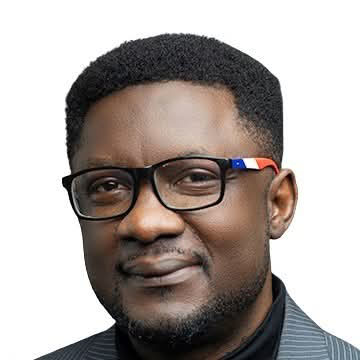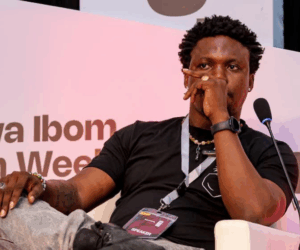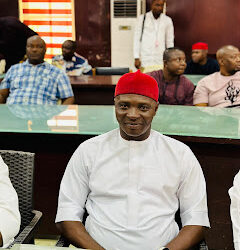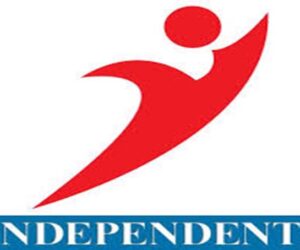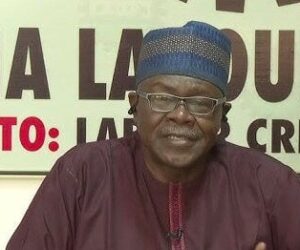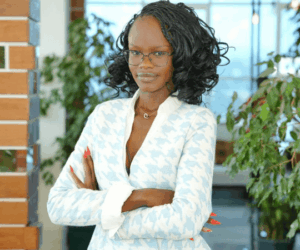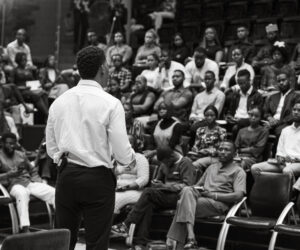1
In the last two decades, one name has quietly but powerfully reshaped the very fabric of family and leadership across continents Praise Fowowe. Articulate, innovative, and unapologetically bold, this global speaker has not just spoken to audiences; he has sparked revolutions in minds and homes alike.
Fowowe’s visionary brainchild; Family Engineering, isn’t just a concept. It’s a cultural reset, a no-holds-barred approach to parenting education, values-based leadership, and societal transformation.
From boardrooms to living rooms, his message is clear; the future doesn’t begin in government offices or tech startups. It begins at home. And if families are the foundation of any society, then Praise Fowowe is the quiet architect, drawing bold new blueprints that the world didn’t know it needed until now, because he sees greater opportunity to build, to heal, and to empower people of the society.
Daily Independent’s BOLATITO ADEBOLA interviews renowned global speaker and family life strategist; Praise Fowowe, Principal Consultant at Praise Fowowe Research LLC and Founder of the Institute of Family Engineering & Development Africa, on building future-proof families in the 21st century, who recently received the 2025 President’s Lifetime Achievement Award from U.S. President Joe Biden, recognizing his global contributions to family life innovation.
What motivated you to choose family life coaching as a way to address broader societal issues?
I grew up watching African leadership modeled in the home; men as dominant voices, women often silenced despite their brilliance. Even as a child, I wondered: what if every voice in the family could be heard? That question led me on a life-changing journey. I discovered that every national leader first emerged from a family, and that broken homes mirror broken societies. If marriages are wounded, nations will bleed.
Over three years, I studied 25 couples married for 40–65 years across cultures to uncover what sustained them. From that research, I developed the ‘Family Systems Engineering Framework’; a fusion of psychology, sociology, theology, and systems intelligence to help families thrive by design, not by chance.
What started as a study is now a continental movement. We have certified professionals in 21 countries, using this model to solve family and institutional challenges across Africa, North America, and Europe. My belief is simple; basically, transform families, heal societies. The family is the first government and fixing it is the first step toward true development.
How does a family life coach differ from traditional therapy or counselling?
Today, Africa faces a critical gap in family science, with just 1.4 mental health professionals per 100,000 people and fewer than 10 universities offering Family Science or Therapy programs. This leaves untrained professionals handling complex family issues. Traditional therapy diagnoses dysfunction, and counselling gives advice but Family Life Coaching, especially through our Family Systems Engineering model, blends therapy, coaching, and strategic systems thinking. It’s proactive, culturally adaptive, and results-driven. Our innovation, the OYELA Psychometric Platform, diagnoses family life issues with 96% accuracy in under 15 minutes; a first in Africa. In essence, while therapy explores the past, Family Life Coaching equips individuals and families to design a healthier future. Africa doesn’t just need healing and it needs a system built for wholeness.
Which of the 11 core family systems do you see most commonly overlooked, and why?
Probably the most important is the Family Governance System. Governance is the unseen backbone of any thriving family, yet most operate without it. Just like Nigeria struggles with resource control and leadership distrust, many families reflect the same disorder. In 25 years of practice, I’ve seen over 85% of families lack a shared vision, values, or rules. No family constitution, no guiding principles for children, no legacy framework. Without governance, confusion reigns. What’s often seen as marital crisis is really structural failure. Governance brings peace, clarity, and lasting trust.
How do you overcome resistance from families who don’t see the value of coaching?
Many people wrongly believe you must have a perfect marriage to coach others, like a doctor needing to be sick to heal. That’s why advocacy matters. We’ve teamed up with governments, religious groups, and NGOs to normalize family life coaching. For example, with Lagos State’s Domestic and Sexual Violence Agency, we trained all Marriage Registrars to spot warning signs and intervene early. When I started, bookings were rare. Now, family life coaching is respected, thriving, and breaking stigma. Awareness is growing, and Africa is catching up.
What can workplaces do to include family life coaching in their employee wellness programs?
Corporate Africa has embraced Employee Assistance Programs (EAPs), but there’s a major gap with Employee Family Assistance Programs (EFAPs). Many companies still classify family issues under general mental health, often handled by professionals unfamiliar with family systems. As a result, interventions miss the root cause family dysfunction leading to limited impact. Family Life Coaching addresses this gap by aligning work and home life. We’ve seen a restored marriages boost productivity by up to 40%. Still, many companies prioritize foreign credentials over proven local expertise. A Yale degree may sound safer, but family systems respond to insight, not accents. Thankfully, some forward-thinking HR leaders are seeing the difference. We’re now working to make Family Life Coaching a core part of employee wellness strategies across Africa.
How do you see family life coaching shaping society nationally or globally?
We’re building what I believe could become one of Africa’s greatest exports which is ’Family Systems Engineering. Our graduates are now practicing in 21 countries, with our model showing consistent results across Hispanic, Chinese, Indian, and Caribbean families. Why? Because while cultures differ, human pain is universal. This African-born model applies national development principles at the family level, offering tools to raise successful children and heal generational trauma. It’s nation-building that starts at the dining table. We’re publishing research, establishing the Institute of Family Engineering & Development Africa, and shifting from conversation to data, from inspiration to institution. One day, when the world seeks systems that heal homes and stabilize nations, they won’t just come to Africa for resources but for wisdom on family life.

